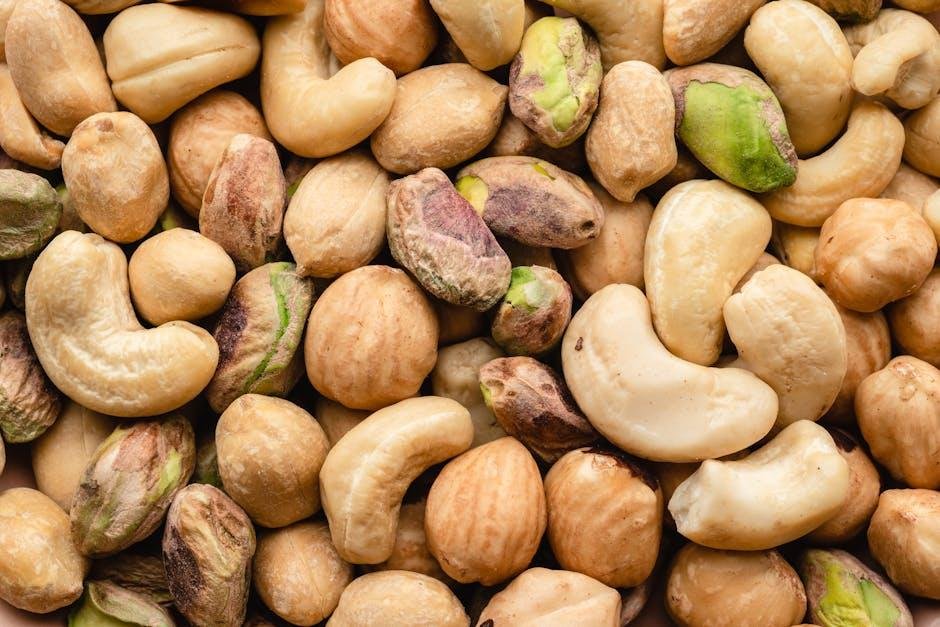When it comes to preparing wholesome meals, the cooking method you choose can significantly impact the nutrient content of your food. Slow cooking, a technique that involves simmering ingredients at low temperatures over extended periods, has gained popularity for its convenience and flavor enhancement. But beyond taste and ease, slow cooking offers an often-overlooked benefit: better preservation of nutrients. In this article, we’ll explore why slow cooking helps retain more vitamins, minerals, and antioxidants compared to other cooking methods, and how you can make the most of this technique to boost the nutritional value of your meals.
Table of Contents
- How Slow Cooking Retains Vitamins and Minerals Better Than High Heat Methods
- The Science Behind Nutrient Preservation in Slow Cooking
- Choosing the Right Ingredients to Maximize Nutrient Retention
- Tips for Optimizing Flavor and Nutrition in Your Slow Cooker Recipes
- The Conclusion
How Slow Cooking Retains Vitamins and Minerals Better Than High Heat Methods
When food is cooked at high temperatures, many vitamins, especially water-soluble ones like vitamin C and B-complex vitamins, degrade rapidly. Slow cooking, on the other hand, uses a lower and more consistent heat over a longer period, which minimizes nutrient loss. This gentle cooking method helps to preserve the structural integrity of delicate vitamins and minerals, preventing them from breaking down or evaporating. For example, minerals such as potassium, calcium, and magnesium remain more stable in slow-cooked dishes, ensuring meals retain their natural nutritional value.
In addition to temperature control, slow cooking typically involves sealing the food in a pot or slow cooker, which reduces exposure to oxygen—a key factor that accelerates nutrient degradation. The minimal stirring and controlled moisture during slow cooking further contribute to preserving nutrients. Some benefits include:
- Retention of essential antioxidants
- Less leaching of vitamins into water or cooking liquids
- Enhanced absorption of nutrients due to gentle breakdown of fibers
By choosing slow cooking over methods like frying or boiling at high heat, you’re not just making your meals tastier but also more nutritious, maximizing the health benefits of your ingredients.
The Science Behind Nutrient Preservation in Slow Cooking
Slow cooking maintains nutrient integrity by using lower temperatures over extended periods, which minimizes the breakdown of heat-sensitive vitamins such as vitamin C and certain B vitamins. Unlike high-heat methods that can degrade or volatilize nutrients quickly, slow cooking allows food to gently reach temperatures that are sufficient for cooking but gentle enough to preserve delicate compounds. Additionally, the sealed environment of slow cookers traps steam and moisture, preventing nutrient loss through evaporation and oxidation. This mechanism ensures that minerals and water-soluble vitamins remain largely intact within the food matrix.
Another factor contributing to nutrient preservation is the slower enzymatic activity during the lengthy cooking process. Enzymes responsible for nutrient degradation are less active at moderate cooking temperatures compared to rapid high-heat methods. Slow cooking also promotes the breakdown of tough fibers, making minerals like iron, calcium, and magnesium more bioavailable for absorption in the digestive tract. Key benefits include:
- Reduced nutrient degradation through gentle heat application
- Retention of moisture and vitamins via a closed cooking environment
- Enhanced mineral bioavailability due to softened food structures
Choosing the Right Ingredients to Maximize Nutrient Retention
When selecting ingredients for slow cooking, prioritize fresh, whole foods that naturally retain their nutrients well during long, gentle heat exposure. Vegetables with dense cellular structures such as carrots, sweet potatoes, and squash maintain their vitamins and minerals better than more delicate greens. Root vegetables, in particular, benefit from slow cooking as their fiber softens without significant nutrient loss. Meanwhile, opting for organic and locally sourced produce can further enhance the nutritional profile of your meals, ensuring that what goes into the slow cooker starts with optimal quality.
Sources of protein also impact the overall nutrient retention of slow-cooked dishes. Choose high-quality cuts of meat or plant-based proteins that respond well to extended cooking times, such as tougher beef cuts, legumes, or whole grains. These ingredients not only absorb flavors deeply but also preserve essential amino acids and micronutrients. To maximize the benefits, consider these tips:
- Trim excess fat without removing all natural juices, which help retain nutrients.
- Incorporate herbs and spices that add antioxidants and bolster nutrient content.
- Avoid over-chopping ingredients to maintain their structural integrity and prevent nutrient leaching.
Tips for Optimizing Flavor and Nutrition in Your Slow Cooker Recipes
To truly harness the benefits of slow cooking, focus on ingredient quality and layering flavors. Start with fresh, nutrient-dense produce and lean proteins, as these retain more vitamins and minerals during the extended cooking process. Incorporating herbs and spices early on allows their essential oils to infuse the dish gradually, creating depth without overpowering the natural taste. Additionally, avoid unnecessary liquid additions; slow cookers generate steam that circulates to tenderize ingredients, so excess water can dilute flavors and leach nutrients.
Maximizing nutrient retention also means considering cooking times and techniques. Resist the temptation to frequently lift the lid—each peek releases heat and prolongs cooking, potentially degrading sensitive nutrients. Instead, use the cooker’s light or windowed lids to check progress if needed. Combine vegetables of varying textures by adding firmer varieties like carrots or potatoes at the start, while more delicate greens or herbs are better added in the final 30 minutes to preserve their vibrant color and beneficial compounds.
The Conclusion
In the end, slow cooking offers a simple yet effective way to preserve the nutritional value of your meals. By gently simmering ingredients at lower temperatures over extended periods, this method helps retain vitamins and minerals that might otherwise be lost with high-heat cooking. Whether you’re looking to boost the health benefits of your home-cooked dishes or simply enjoy rich, flavorful meals, slow cooking is a technique worth embracing. So next time you plan your dinner, consider letting your ingredients take their time—it’s a small change that can make a big difference for your nutrition.
Related Products
-
Sale!
Frida Mom 2-in-1 Postpartum Pads, Absorbent Perine…
Mom Original price was: $19.99.$15.19Current price is: $15.19. -
John Deere Bubble Lawn Mower for Toddlers, Bubble …
Kids $29.99 -
Hanes Men’s EcoSmart Fleece, Pullover Crewneck Swe…
Clothing $9.31







